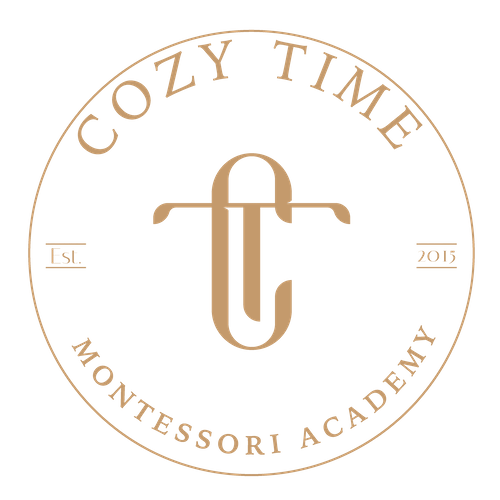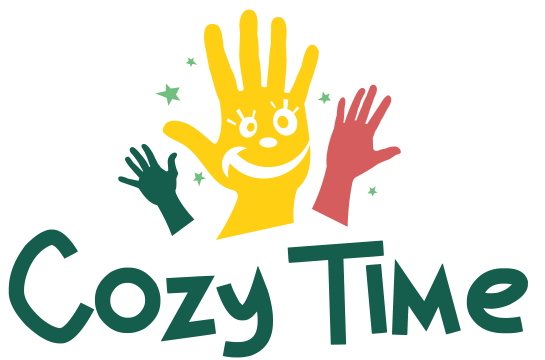My Personal Journey to Discovering Montessori Daycare
As a parent, I found myself standing at the crossroads of daycare options for my then two-year-old daughter. I wanted more than just a place where she would be safe and cared for; I wanted an environment that would cater to her unique learning style and nurture her natural curiosity. This led me to discover the world of Montessori daycare. As I delved deeper into the philosophy of Montessori education, I was excited to see how it emphasizes hands-on learning and independence. I began to explore various Montessori daycare trends and innovations that align with these principles, eagerly noting how they foster creativity and critical thinking in young children. It was clear that this approach would not only keep my daughter engaged but also help her thrive in an enriching and supportive atmosphere.
What is Montessori Daycare?
Montessori daycare is a unique approach to early childhood education that was developed by Dr. Maria Montessori in the early 20th century. The Montessori method focuses on the child’s natural learning tendencies, emphasizing independence, freedom within limits, and respect for a child’s natural psychological, physical, and social development. In a Montessori daycare, learning is child-centered, allowing each child to explore and learn at their own pace.
The Core Principles of Montessori Daycare
Montessori education is built upon the foundation of five core principles: respect for the child, the absorbent mind, sensitive periods, the prepared environment, and self-education. These principles guide the approach and curriculum in a Montessori daycare, creating a learning environment that respects and nurtures the unique capabilities of each child.
Advantages of Montessori for Early Childhood Education
Choosing a Montessori daycare for my daughter turned out to be one of the best decisions I made. The benefits became evident as I watched her grow and thrive in this environment.
The Role of Play in Learning
Play is an integral part of the Montessori approach. However, it’s not just about having fun. Montessori play is purposeful and structured, guided by the child’s interests and curiosity. It was a delight to watch my daughter immerse herself in activities that sparked her interest, developing skills and knowledge in a joyful and engaging manner.
Benefits of Hands-on Learning in Montessori Daycare
Another attribute that stood out in the Montessori approach was the emphasis on hands-on learning. Children in Montessori daycare are encouraged to explore and manipulate materials, fostering a deep understanding of concepts and ideas. This tactile approach to learning made a substantial difference in my daughter’s education, developing her problem-solving skills, and enhancing her creativity.
Comparing Montessori and Traditional Daycare
When comparing Montessori and traditional daycare, the differences become quite apparent.
Key Differences
Traditional daycare often follows a predetermined curriculum with a focus on achieving specific learning outcomes. In contrast, Montessori daycare follows the child’s lead, allowing them to explore topics of interest at their own pace. This fosters a love for learning and encourages curiosity and creativity.
Why Montessori Might Be More Beneficial
Based on my personal experience and observation, Montessori daycare offers a more holistic approach to early childhood education. The focus on individual learning and development has proven beneficial for my daughter, who has grown to be an independent, confident, and curious learner. Moreover, the freedom to explore her interests at her own pace has fostered a love for learning that extends beyond the classroom. A Montessori daycare services overview reveals that the tailored curriculum and nurturing environment significantly contribute to children’s emotional and social development. This approach not only prepares them academically but also equips them with essential life skills. Additionally, the emphasis on hands-on activities and exploration fosters a love for learning that extends beyond the classroom. This is further enhanced by the montessori after school activities, which provide opportunities for continued growth in a supportive environment. Such initiatives allow children to pursue their interests and develop valuable social skills alongside their peers. The emphasis on self-directed activities and collaborative play fosters essential social skills that are crucial for later success. Furthermore, the Montessori approach for kindergarten readiness encourages children to explore their interests at their own pace, which cultivates a love for learning. This nurturing environment not only boosts academic preparedness but also shapes their emotional development, making the transition to kindergarten smoother and more enjoyable.
If you’re a parent in Toronto looking for a daycare that offers a unique, child-centered approach to learning, consider a Montessori daycare. You can reach out to Cozytime Child Care, a top-rated Montessori center, at (416) 602 3811 to learn more about their programs and how they can benefit your child.
Choosing a Montessori Daycare
As a seasoned writer and a parent who has walked the path, I’ve learned a few things about choosing a Montessori daycare. It was an early morning in 2005, the sun peeking out from behind the Toronto skyline. I was holding my firstborn, anxious about the prospect of leaving her at a daycare. The journey that followed was full of discovery, realization, and ultimately – satisfaction.
Factors to Consider When Choosing
When it comes to choosing a daycare, there are many factors to consider. Firstly, it’s crucial to understand the Montessori philosophy, which emphasizes self-directed learning, hands-on engagement, and respect for a child’s natural psychological development. Check if the daycare adheres to these principles in their curriculum and learning activities.
Secondly, observe the environment. A Montessori setup should be calming and inviting, with learning materials arranged on low, accessible shelves. Lastly, consider the teacher-student ratio. Montessori emphasizes individual attention, so a low ratio is preferred.
Finding a Certified Montessori Daycare
Finding a certified Montessori daycare in Toronto, like Cozytime Child Care, is essential. Look for accreditation from bodies like the American Montessori Society or Association Montessori Internationale. These certifications ensure that the daycare follows genuine Montessori practices.
Success Stories of Montessori Daycare
Over the years, I have heard countless success stories from parents whose children attended Montessori daycares. These stories remain a testament to the effectiveness of this unique approach. Many parents express how their children developed independence, creativity, and a love for learning through the Montessori method. Furthermore, the structure and philosophy of this approach often lead to a more harmonious home life, as children become more self-sufficient. As a result, the Montessori daycare benefits for parents extend beyond their children’s growth, providing peace of mind and a supportive community.
Case Studies of Successful Students
In a recent study by Lillard and Else-Quest, children in Montessori preschools showed more advanced social and academic skills compared to those in conventional preschools. One of these students, a Toronto local, demonstrated exceptional problem-solving abilities and social skills, outcomes directly attributed to his Montessori education.
Testimonials from Parents
Parents too, share glowing testimonials. One parent from a Montessori daycare in Toronto exclaimed, “I’ve seen my child grow leaps and bounds in her independence and love for learning. She’s always excited about going to her daycare, and I couldn’t be happier!”
Final Thoughts: Is Montessori the Best Choice for Your Child?
The decision to choose Montessori is contingent on various factors. Understanding your child’s needs and the impact of Montessori on long-term learning is paramount.
Understand Your Child’s Needs
Every child is unique, with their own set of needs and learning preferences. Some children may thrive in a Montessori environment, while others might do better in a more structured setting. Thus, it’s crucial to understand your child’s needs before making a decision.
The Impact of Montessori on Long-term Learning
Research suggests that Montessori education can have profound effects on long-term learning. A study by Angeline Lillard found that Montessori students outperformed their peers in reading, math, social skills, and behavior.
Montessori may not be the one-size-fits-all solution for every child, but its conceptual framework and pedagogy have stood the test of time, benefiting countless children worldwide.
If you’re considering a Montessori daycare in Toronto, I encourage you to explore Cozytime Child Care, a licensed Montessori center. Take the first step towards a unique and enriching learning experience for your child. To learn more, dial (416) 602 3811 today.

